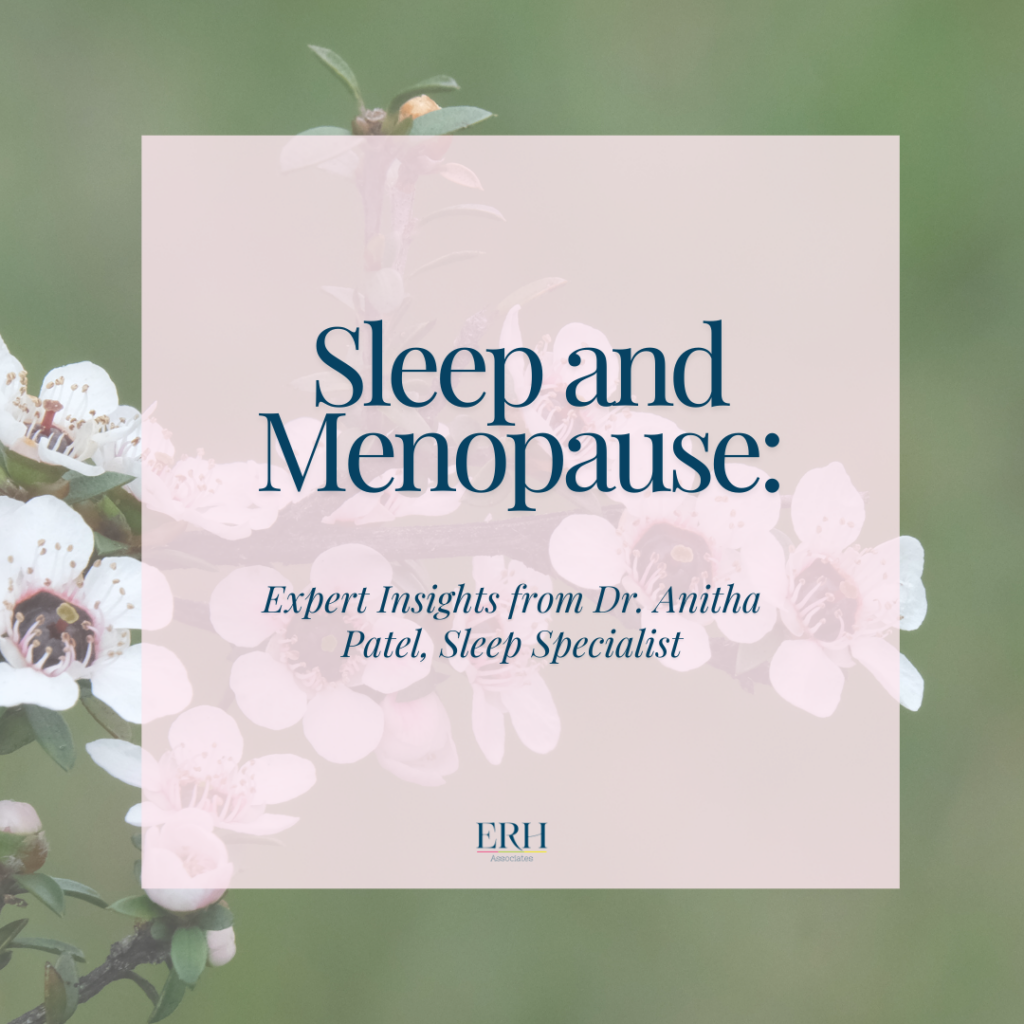As part of our Menopause Focus series, we are shedding light on different aspects of menopause and how they affect daily life. In this article, our sleep specialist colleague Dr Anitha Patel discusses one of the most commonly reported issues during menopause: sleep difficulties. Whether it’s trouble falling asleep or staying asleep, sleep disturbances can have a profound impact on emotional well-being and daily functioning.
Below, Dr. Patel explores the causes of these sleep challenges during menopause and offers practical strategies for improving sleep quality.
Cultural context
Though it’s long been a taboo topic, the world is beginning to adapt to a more modern view of the menopause. Hot flushes may be familiar from popular culture. But flushes may not be the most prominent symptoms for many people, and there are many other symptoms of menopause including brain fog, mood swings, depression, night sweats, and aching bones, not to mention significant changes to your ability to sleep.
Whether it’s waking up constantly at night or not being able to get to sleep in the first place, difficulty sleeping is a key and common symptom of menopause.
Naturally, difficulty sleeping plays into our mental and emotional well-being and affects our workplace performance.
What Causes Sleep Difficulties During Menopause?
Sleep issues are a common difficulty reported during menopause, with snoring and insomnia being some of the most problematic. The exact causes of this increase in sleep disruption can vary, although hormonal changes are believed to play a role in over 30% of women. Sleep can also be disrupted due to changes in body temperature caused by hot flushes, which trigger awakening during the night and restless leg syndrome. Given that the menopause is also associated with heightened anxiety and low mood, these can also get in the way of sleep. There isn’t evidence that hormone replacement therapy always helps with sleep -whether it helps or not probably depends on the combination of factors contributing to sleep disturbance for each person, for example whether non-hormonal factors such as sleep apnoea are present.
How Can I Improve Sleep During Menopause?
1. General Health
High blood pressure, a sedentary lifestyle, alcohol and smoking all worsen menopause symptoms. These are all things that can be managed to some degree. Quitting smoking, especially before you’re 40 years old could make a significant difference in how you experience menopause symptoms.
2. Sleep In a Cool Room
Ensure you sleep in a cool room where air can flow freely. Use a fan on warm nights and avoid heavy synthetic linen or tight bedspreads. Sleep in light, breathable cotton sleep clothes.
3. Practise Good Sleep Hygiene
Make sure that you have a good sleep routine. Practise a consistent sleep schedule, reduce blue light before bed, sleep in a dark room, and prioritise a balanced diet, rich in whole foods.
What about sleep apnoea? Why is sleep apnea commonly underdiagnosed in women?
Women can have symptoms of sleep apnoea that are different and more subtle than those most commonly reported in men.
Common symptoms of OSA in women are insomnia, morning headaches, altered moods and memory issues.
Although snoring is still the commonest symptom in both genders, women are less likely to speak about it because they may not be snoring, they are embarrassed to admit their snoring, or their family or bed partner does not mention their snoring. On the other hand, women are more likely to report feeling depressed or having trouble sleeping, which could be a reason they are sometimes not investigated for OSA or get misdiagnosed with depression or insomnia.
Where Can I Go for Additional Help?
If troublesome sleep issues persists, you may want to seek help from a sleep specialist, specifically one that offers a multi-specialty approach.
Auckland Sleep has a collective of experts who specialise in eight different domains of sleep health. This team of eight different specialities under one roof provides a multi-faceted approach that is unique in sleep medicine in New Zealand.
Auckland Sleep offer the SNAP Package which is the fastest and most affordable way to better sleep health. Contact the friendly Auckland Sleep team to find out how they can help you.
Dr Anitha Patel (Brief Behavioral Therapy, Advanced Cognitive Therapy & Teen Sleep Practitioner (WINK Sleep) Cert. in Fundamentals of Sleep Medicine (University of Sydney) Masters in Surgery & DNB – ORL (India) is the Senior Sleep Navigator and Insomnia Specialist at Auckland Sleep. Find out more about Anitha here
For more comprehensive menopause support, join the waitlist for our upcoming Menopause app-based course. The course will provide step-by-step guidance, evidence-based medical information mindset strategies, and practical tips to help you navigate menopause with confidence. We will be announcing the course launch date soon!
For personalised medical care around the hormonal aspects of menopause ask your doctor for a referral to ERH Associates

Comments +